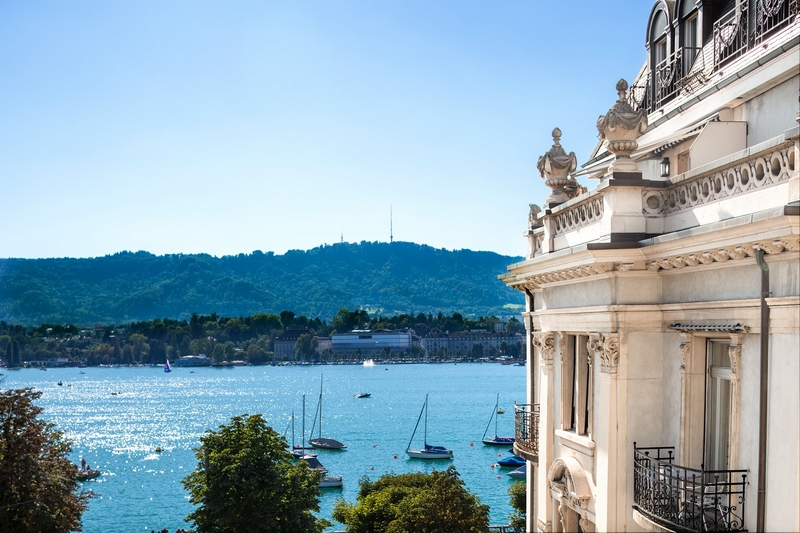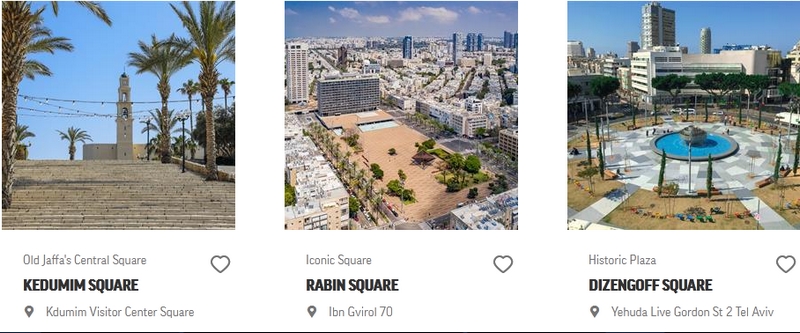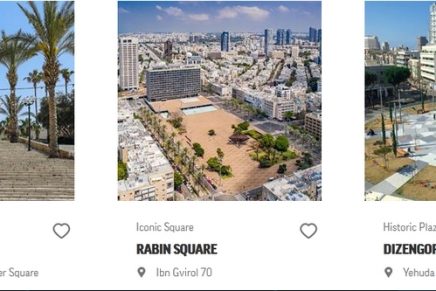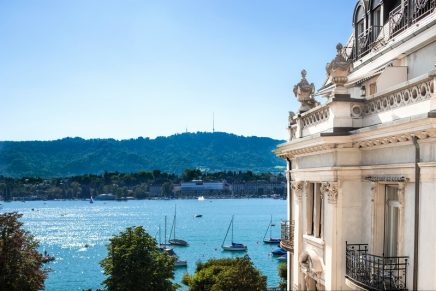Tel Aviv has jumped from fifth place to first in this year’s EIU’s Worldwide Cost of Living (WCOL) index, ahead of Paris and Singapore in joint second place.

La Reserve Eden au Lac Zurich; @lareserve-zurich.com
Damascus remains the world’s cheapest city, with prices falling in US dollar terms since last year as the war-torn Syrian economy struggles. Data released by the Economist Intelligence Unit (EIU) reveals soaring price increases are contributing to the fastest rise in the cost of living for city dwellers in five years. The EIU’s 2021 WCOL index, which tracks the cost of living in 173 cities across the world, also reveals Tel Aviv is now the world’s most expensive city, rising from fifth place in 2020 to overtake Paris, which previously occupied the top spot.
On average, prices for the goods and services covered by WCOL have risen by 3.5% year on year in local-currency terms, compared with an increase of just 1.9% this time last year. Transport costs rose most rapidly in this year’s survey, mainly because of rising oil prices driving a 21% increase in the price of unleaded petrol, but the recreation, tobacco and personal care categories also showed strong increases. These numbers exclude four cities suffering from very high inflation—Caracas, Damascus, Buenos Aires and Tehran.
The WCOL rankings continue to be sensitive to shifts brought about by the Covid-19 pandemic. The survey data were collected between August 16th and September 12th 2021, when freight rates and commodity prices were continuing to rise across the world. Combined with fluctuating consumer demand and exchange-rate shifts, the resulting supply problems have fuelled price rises in the world’s major cities.
The most expensive cities in the world 2021:
1. Tel Aviv, Israel
2. Paris, France
2. Singapore
4. Zurich, Switzerland
5. Hong Kong, China
6. New York, U.S.
7. Geneva, Switzerland
8. Copenhagen, Denmark
9. Los Angeles, U.S.
10. Osaka, Japan
“Although most economies across the world are now recovering as Covid-19 vaccines are rolled out, many major cities are still seeing spikes in cases, leading to social restrictions. These have disrupted the supply of goods, leading to shortages and higher prices. We can clearly see the impact in this year’s index, with the rise in petrol prices particularly stark. But not all cities saw price increases. Many of the cities towards the bottom of our rankings saw prices stagnate or even fall, partly because their currencies weakened against the US dollar.
Over the coming year, we expect to see the cost of living rise further in many cities as wages increase in many sectors. However, we are also expecting central banks to raise interest rates, cautiously, to stem inflation. So the price increases should start to moderate from this year’s level.” – Upasana Dutt, Head of Worldwide Cost of Living at EIU.
Tel Aviv topped the rankings for the first time, climbing from fifth place last year. Tel Aviv’s rise mainly reflects the strength of the Israeli currency, the shekel, against the US dollar (the WCOL index is benchmarked against prices in New York City) and increases to grocery and transport prices. The city that saw the biggest jump was Tehran (Iran), which rose from 79th to 29th place as US sanctions caused shortages and price increases.
In general, the top of the rankings is still dominated by European and developed Asian cities, while North American and Chinese cities remain relatively moderately priced. The cheapest cities are mainly in the Middle East and Africa, or the poorer parts of Asia. Damascus (Syria) has retained its place as the cheapest city in the world to live in. It came at the bottom in seven of the ten pricing categories, and close to the bottom in the remaining three.
Second from bottom was Tripoli (Libya), which was one of the 40 new cities added to EIU’s rankings this year. In total, ten new cities came in the bottom 50 of this year’s WCOL index, while only three new cities appeared in the top 50. The most expensive of the new cities is Edinburgh (UK), which came joint 27th.

Eden Kitchen at La Reserve Eden au Lac Zurich; @lareserve-zurich.com





